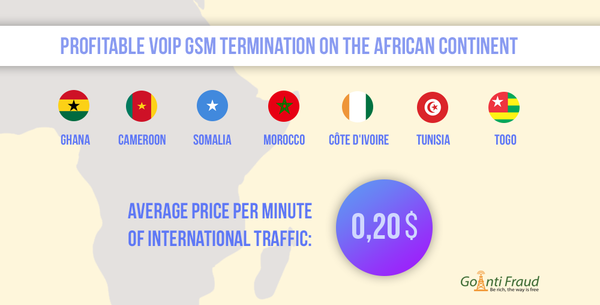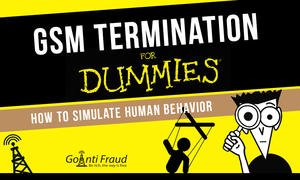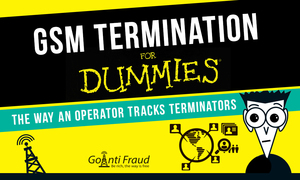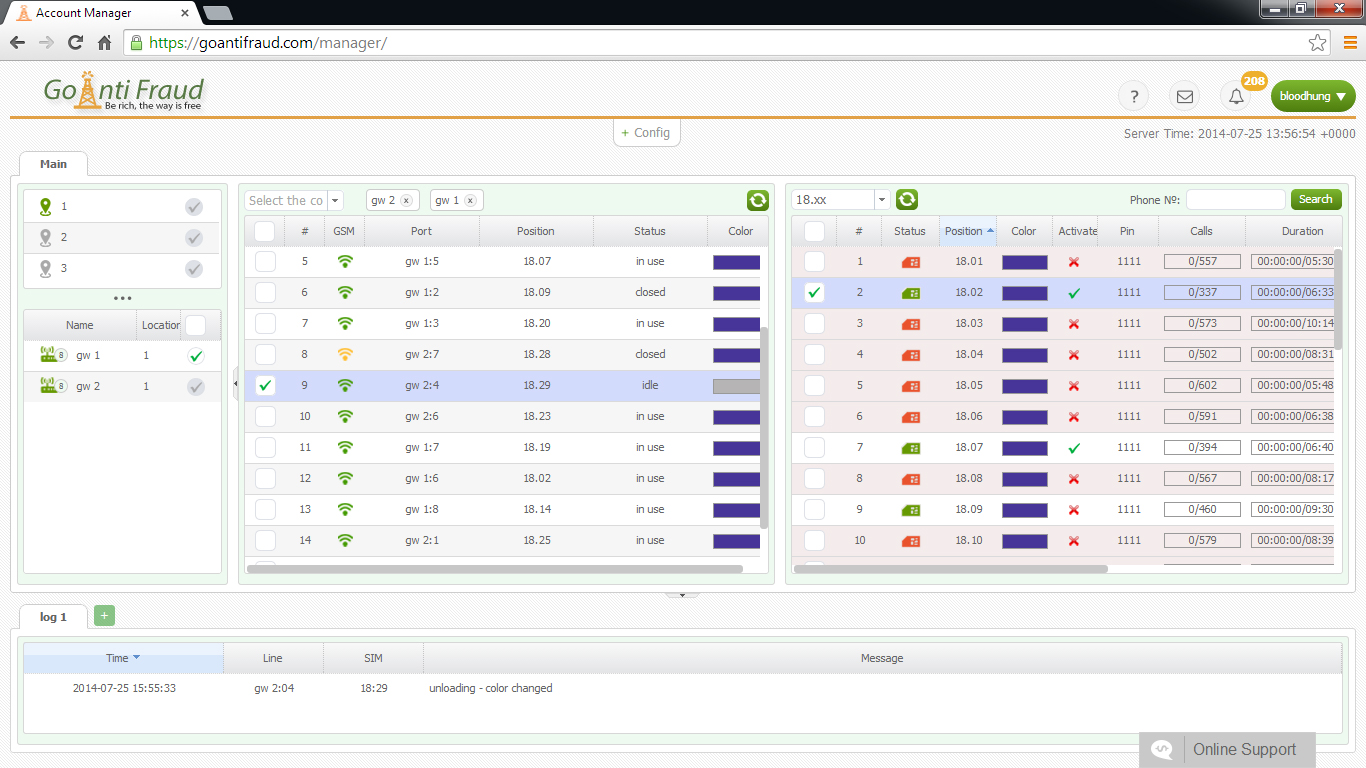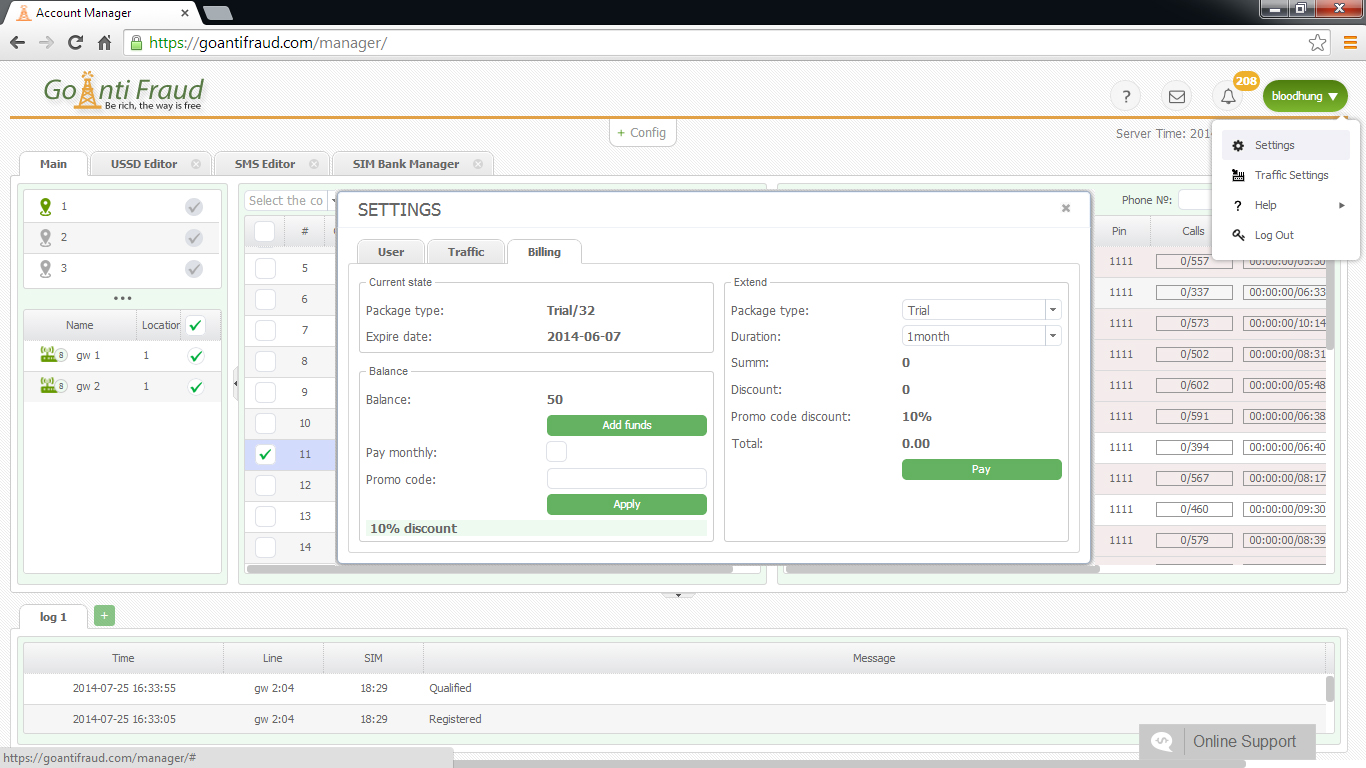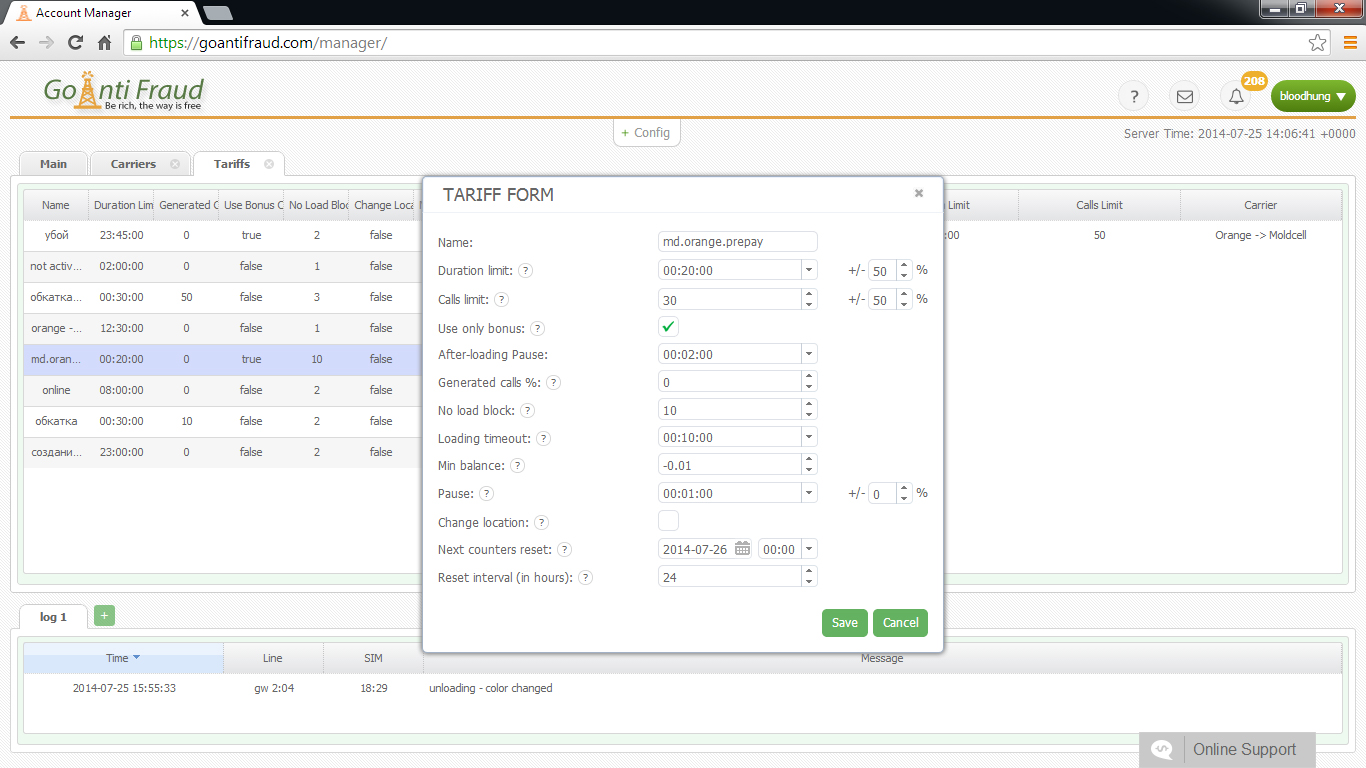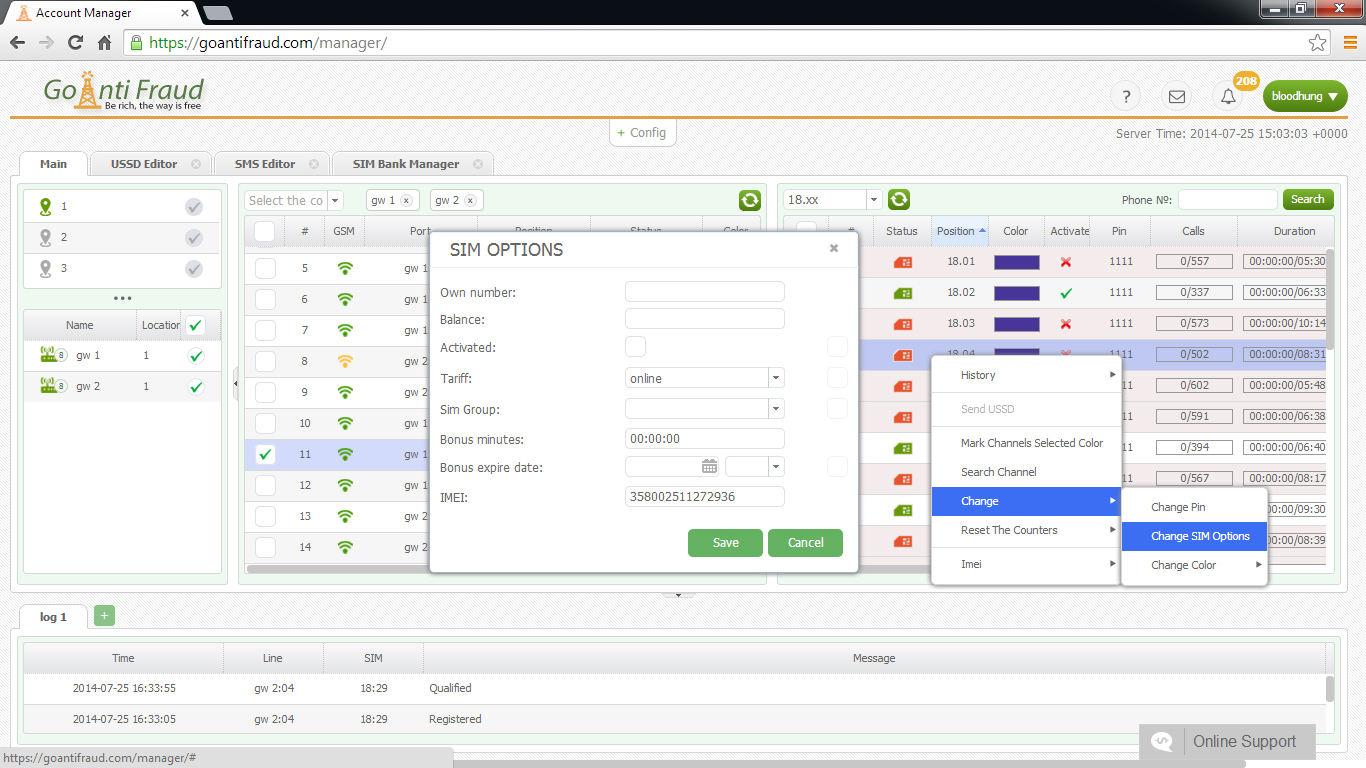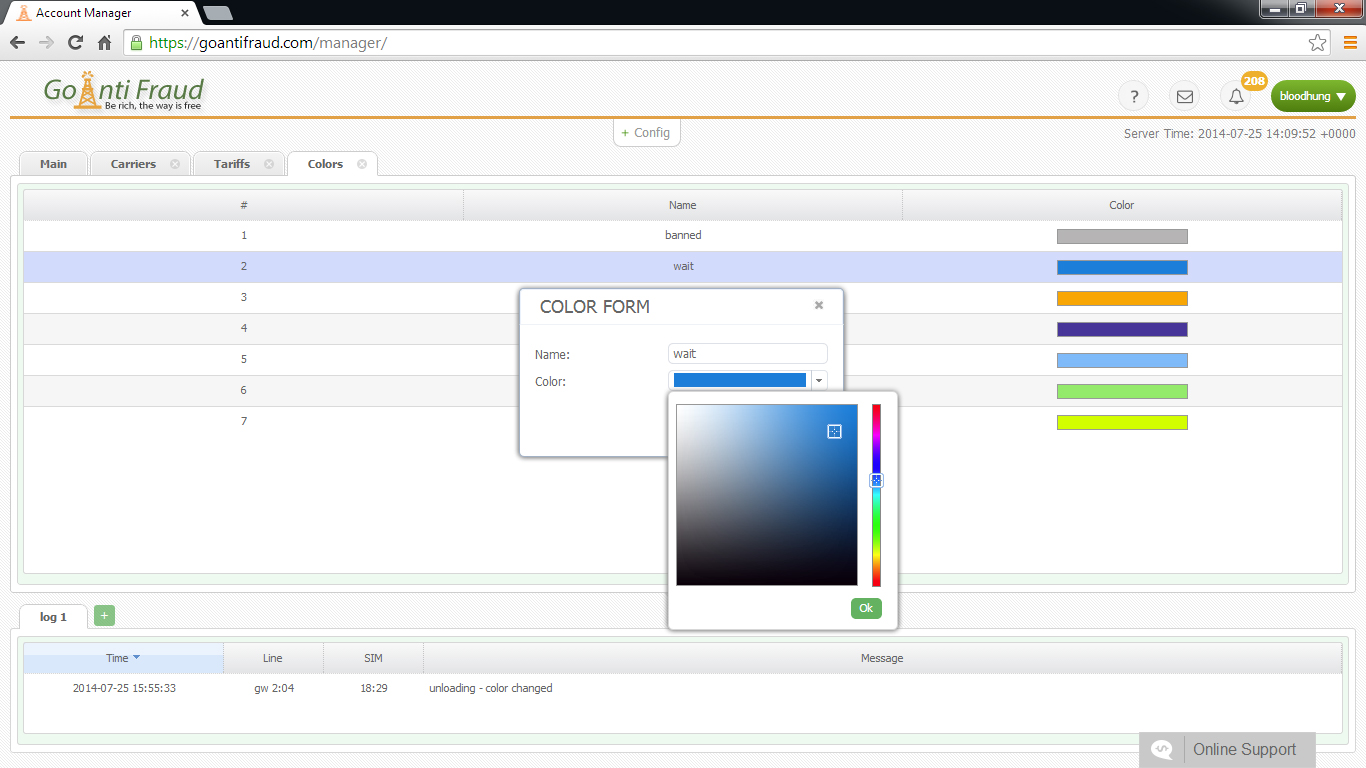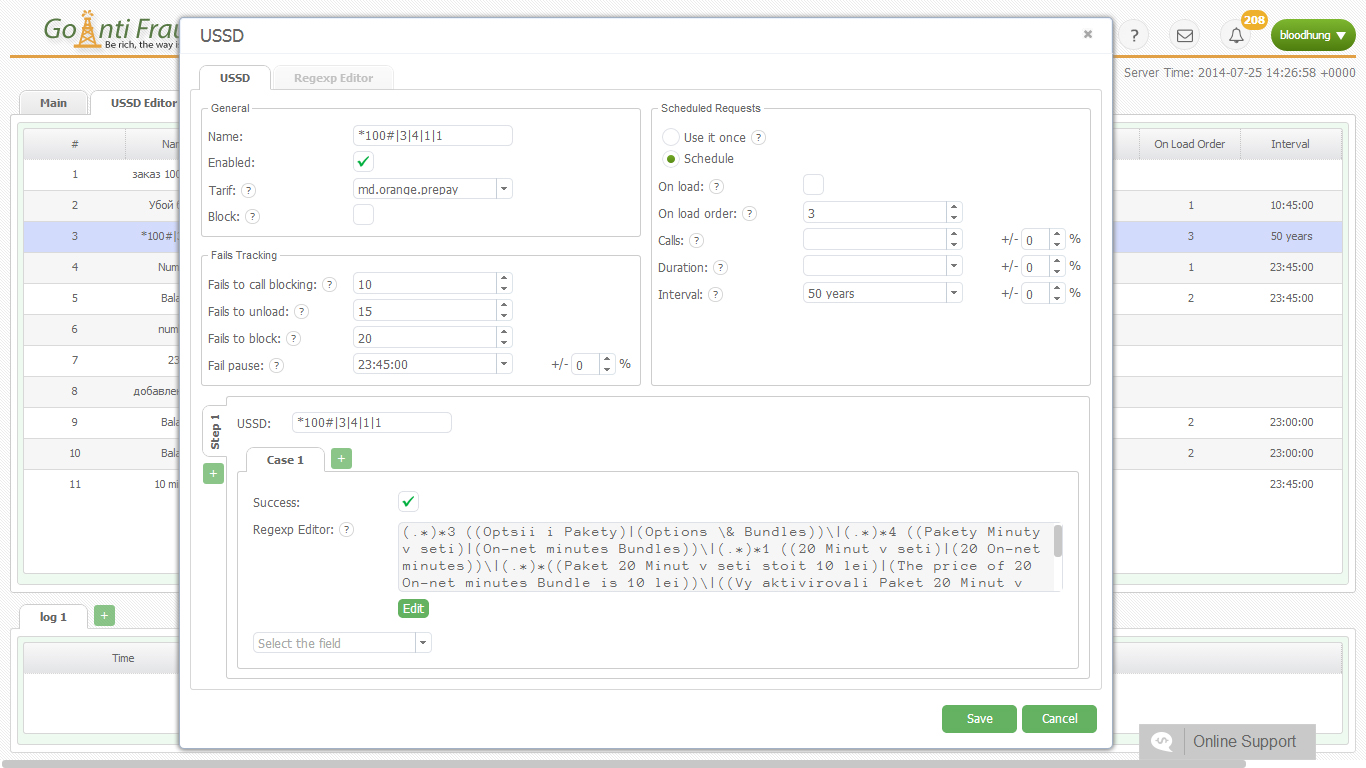Terminating international voice traffic that circumvents a GSM operator is a promising business niche. However, the terminator has to face obstacles associated with blocked SIMcards. Operators, dissatisfied with the loss of their own profits, use modern AntiFraud systems to detect termination of VoIP traffic and constantly improve them.
The TOP countries where calls are terminated most often are the states of Africa, the Balkans, and the CIS. Therefore, local operators do not spare money to develop and implement smart antifraud systems. There are 2 types of such programs:
- Active programs. They identify the numbers from which the termination of calls is made, through test calls from around the world to suspicious numbers.
- Passive programs. They work on the basis of the analysis of the activity of GSM subscribers, determining the conformity of their behavior to that of a humane.
Systems of both types block the numbers from which the traffic is terminated. The programs perform an in-depth analysis, checking the activity indicators of subscribers with the established rate. The basic parameters of "humanity" that antifraud systems track:
- Sending/receiving SMS messages;
- Outgoing calls per day;
- Availability of incoming calls;
- Voice communication with regular contacts ("preferred numbers");
- Moving around the city;
- Change of activity according to time of day/days of the week;
- Sending USSD requests to check the balance/connect bonuses.
Are you going to start a VoIP GSM termination business? We bring to your attention GoAntiFraud video materials which contains information about VoIP technologies and the capabilities the service has to offer. Step-by-step video instructions will help you understand what GSM traffic termination is and how to start a profitable business in this area. Do not forget to subscribe to our YouTube channel so that you can always use helpful video materials at any time!
Antifraud systems are being improved, and in addition to analyzing the basic criteria of "humanity", they use other passive methods. For example, operators already realize that the terminator controls the status of balance on SIM-cards and connected bonuses so that numbers are constantly active. To do this, USSD requests are sent and the necessary information is read from the responses received. If the answers cannot be read, after several attempts the SIM-card is unloaded from the gateways, so as not to cause suspicion to the operator. Now, this feature is often used in the detection of termination. Antifraud-systems periodically make almost imperceptible changes in USSD-responses (with several requests in a row). This makes it difficult for programs that read necessary information from USSD responses and leads to failures.
Also, knowing that terminators simulate the activity of a subscriber by having SIM-cards calling one to another in the gateway, operators analyze the relationship between different SIM-cards. In addition, they understand that special programs are used to simulate movement around the city. It is created by several locations and simulates a "journey" of SIM-cards between them. At the same time, during the delay, the SIM-cards are disconnected so as not to cause the operator's suspicion about instantaneous movement. Some antifraud systems now detect delays when moving numbers from one location to another, analyzing the nature of the transition. If SIM-cards skip between different locations and pass intermediate BSs, the numbers are blocked.
Antifraud systems become "smarter" and take into account a huge number of parameters in the analysis. Therefore, it is important to use proven tools to efficiently simulate real subscriber activity, such as GoAntiFraud has to offer. Our specialists can help you create scripts for the "behavior" of cards and will advise where it is best to place 2n voip equipment to bypass antifraud systems.
To prevent blocking of SIM-cards, use GoAntiFraud. Efficient tools for the simulation of human behavior on the GSM networks will allow you to significantly increase your revenues.










